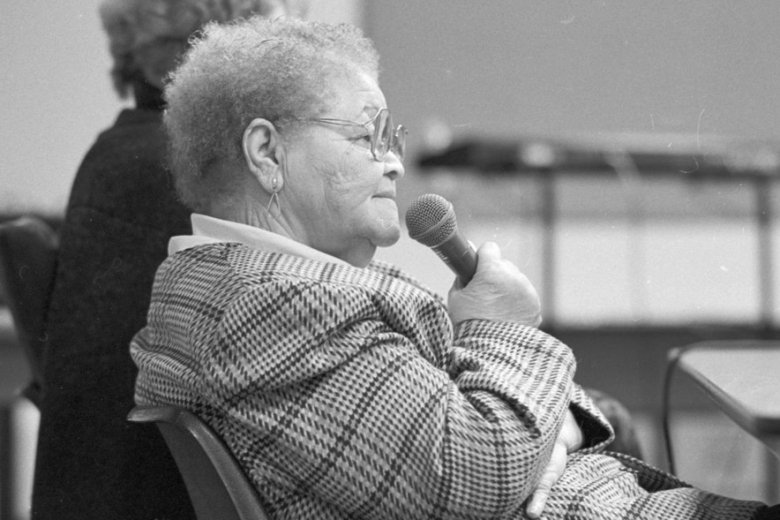Mae Bertha Carter
Photo: Terry Foss
Mae Bertha Carter’s unwavering commitment to education and justice profoundly influenced her daughter, Gloria Dickerson, inspiring her to continue the legacy of transformation in the Mississippi Delta. Born on a cotton plantation in Bolivar County, Mae Bertha fearlessly advocated for her 13 children and others, making the bold decision in 1965 to enroll seven of her children in Drew's all-white public school system. Her courageous actions challenged the status quo and ultimately led to a landmark lawsuit that dismantled discriminatory practices. Through her relentless efforts, Mae Bertha instilled in Gloria the belief that education is a powerful tool for change, paving the way for future generations and embodying the spirit of resilience and hope that inspires the community today.

About Mae Bertha Carter (1923–1999)
Born on a cotton plantation in Bolivar County, MS, Mae Bertha Carter was the mother of 13 children and a fearless advocate for justice. In 1965, she and her husband Matthew took a bold stand, enrolling eight of their children in Drew, Mississippi’s all-white schools under the Freedom of Choice Plan. A sharecropper for 40 years and Headstart teacher for 30, Mae Bertha also served as Vice President of the NAACP Sunflower County chapter. Her courage led to a lawsuit against the Drew School District, ultimately ending the discriminatory Freedom of Choice Plan in 1969 and pushing for desegregation.
Mae Bertha’s fight for justice didn’t stop there. She worked relentlessly to address inequities in the school system, challenging unfair dress codes, disproportionate suspensions of Black students, and biases in special education programs. In 1967, Mae Bertha Carter brought a law suit against the Drew School District on behalf of her children to end the freedom of choice plan.
She won the lawsuit in 1969 whereas, the court threw out the “freedom of choice plans” and ordered desegregation of the schools. After the schools in Mississippi were desegregated in 1970, she continued to tirelessly address other education issues (including participating and/or assisting in class action lawsuits) in the Drew schools, such as dress codes targeted at black students; disproportionate number of school suspension and expulsions of black males; different conduct rules for black and white students; and over inclusion of black students in special education programs. She also advocated for and assisted in getting African American to claims their rights as citizens and register to vote.
Through her remarkable achievements, Mae Bertha Carter, alongside other civil rights activists, paved the way for a more just society—one where students of all races have the right to choose their schools and where African Americans and other minorities are empowered at the polls and in public office.
Honors and Awards: Wonder Woman Foundation award , for “Women Taking Risks”; Children Defense Fund Award; Equal Justice Award from the NAACP Legal Defense Fund; Award of Distinction from the University of Mississippi; Two books have been written about her family – Silver Rights and The School Is Not White; Documentary about her family, The Intolerable Burden.


